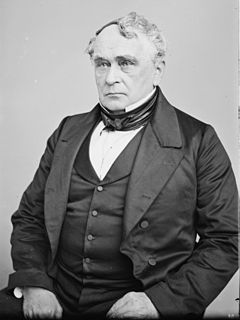A Quote by Immanuel Kant
This can never become popular, and, indeed, has no occasion to be so; for fine-spun arguments in favour of useful truths make just as little impression on the public mind as the equally subtle objections brought against these truths. On the other hand, since both inevitably force themselves on every man who rises to the height of speculation, it becomes the manifest duty of the schools to enter upon a thorough investigation of the rights of speculative reason, and thus to prevent the scandal which metaphysical controversies are sure, sooner or later, to cause even to the masses.
Quote Topics
Against
Become
Becomes
Both
Brought
Cause
Duty
Enter
Equally
Even
Every
Every Man
Favour
Fine
Force
Hand
He Man
Height
Impression
Indeed
Inevitably
Investigation
Just
Later
Little
Make
Man
Manifest
Masses
Metaphysical
Mind
Never
Objections
Occasion
Other
Popular
Prevent
Public
Reason
Rights
Rises
Scandal
Schools
Since
Sooner
Sooner Or Later
Speculation
Speculative
Spun
Subtle
Sure
Themselves
Thorough
Thus
Truths
Useful
Which
Related Quotes
And since the mind is of a man one part,
Which in one fixed place remains, like ears,
And eyes, and every sense which pilots life;
And just as hand, or eye, or nose, apart,
Severed from us, can neither feel nor be,
But in the least of time is left to rot,
Thus mind alone can never be, without
The body and the man himself, which seems,
As 'twere the vessel of the same- or aught
Whate'er thou'lt feign as yet more closely joined:
Since body cleaves to mind by surest bonds.
It is always a great honour to mention a truth which has not become widespread yet. One of these truths is that man has no soul; he has only 'body' and 'mind'. Man's unshakable belief on the soul will not change this scientific truth! No belief can be higher than the scientific truths! Man can be born, can walk and work and can think without owning a mysterious and an immaterial soul! The soullessness of the man is a great tragedy both for the man and for the religion. But Man, contrary to the religion, will come out with triumph from this tragedy.
I must perish in this deplorable folly. Thus, thus, and not otherwise, shall I be lost. I dread the events of the future, not in themselves, but in their results. I shudder at the thought of any, even the most trivial, incident, which may operate upon this intolerable agitation of soul. I have, indeed, no abhorrence of danger, except in its absolute effect-in terror. In this unnerved-in this pitiable condition-I feel that the period will sooner or later arrive when I must abandon life and reason together, in some struggle with the grim phantasm, FEAR.
There are several kinds of truths, and it is customary to place in the first order mathematical truths, which are, however, only truths of definition. These definitions rest upon simple, but abstract, suppositions, and all truths in this category are only constructed, but abstract, consequences of these definitions ... Physical truths, to the contrary, are in no way arbitrary, and do not depend on us.
Control of thought is more important for governments that are free and popular than for despotic and military states. The logic is straightforward: a despotic state can control its domestic enemies by force, but as the state loses this weapon, other devices are required to prevent the ignorant masses from interfering with public affairs, which are none of their business… the public are to be observers, not participants, consumers of ideology as well as products.
Truths are known to us in two ways: some are known directly, and of themselves; some through the medium of other truths. The former are the subject of Intuition, or Consciousness; the latter, of Inference; the latter of Inference. The truths known by Intuition are the original premisses, from which all others are inferred.
As in Mathematicks, so in Natural Philosophy, the Investigation of difficult Things by the Method of Analysis, ought ever to precede the Method of Composition. This Analysis consists in making Experiments and Observations, and in drawing general Conclusions from them by Induction, and admitting of no Objections against the Conclusions, but such as are taken from Experiments, or other certain Truths. For Hypotheses are not to be regarded in experimental Philosophy.









































